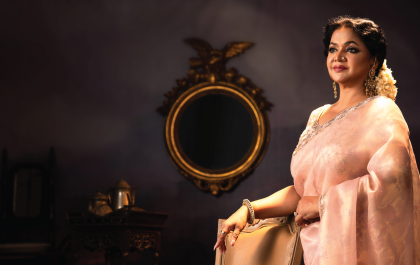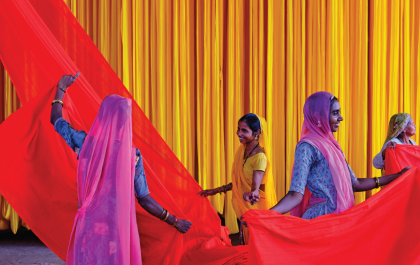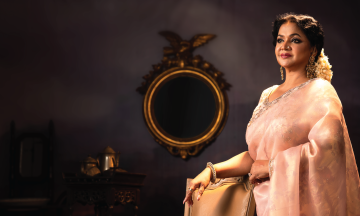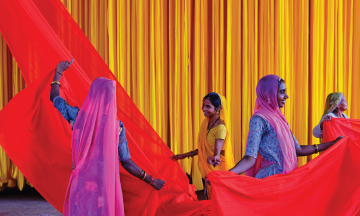With a series of singles up for release and stage shows across cities, the 62-year-old singer-songwriter and composer continues to make music that connects with people
By Deepali Singh
Lucky Ali’s earliest memories of music do not have so much to do with making it as much as they are about messing it up. The second child of late actor Mehmood’s seven children, Lucky (born Maqsood Mehmood Ali) must have been around five years old when he and his cousin brother dropped in at a studio where singer Kishore Kumar and music composer RD Burman were busy recording a song for his father’s film. “There were around 70-80 musicians present as well. My cousin and I started talking through the mic, saying things like ‘Hey, can you hear me? Yes, I can hear you’. We were just really excited to be there,” he chortles at the memory. It was only a matter of time that they were sent back home. “I always used to mess up in my music; I still do sometimes. There are times I sound besura (out of tune), especially after back-to-back concerts,” the 62-year-old singer-songwriter and composer softly chuckles.
I am seated opposite him in his hotel room in Delhi. The evening before, the husky-voiced songster, who made an outstanding debut with the album Sunoh in 1996, performed to a packed house in the capital as part of his Lucky Ali India Tour – a Farmhouse Music Experience. The spellbound audience could not help but sing along as he crooned some of his most popular tracks from a musical career spanning close to three decades. From O Sanam to Jaane Kya, Kabhi Aisa Lagta Hai to Hairat, it was a journey his audience relived and celebrated.
I tell the balladeer, known for his elusiveness, that I was a bit nervous before meeting him, and he gives me a disarming smile. “Meeting the monster,” he laughs out loud. It’s because of the admiration I feel for a man who filled my growing up years with soul-searching ballads, I tell him. For someone in their teens during the ’90s, the iconic O Sanam became the love anthem we didn’t know we needed. “O Sanam was my love story — a love story that I shared with everyone. All of us have those moments in our lives that are not in our control. They affect our lives and often leave behind sweet memories,” says Lucky. It’s been 27 years to the single that captured everyone’s imagination but the memory of creating it remains as fresh for him now, as it was then.
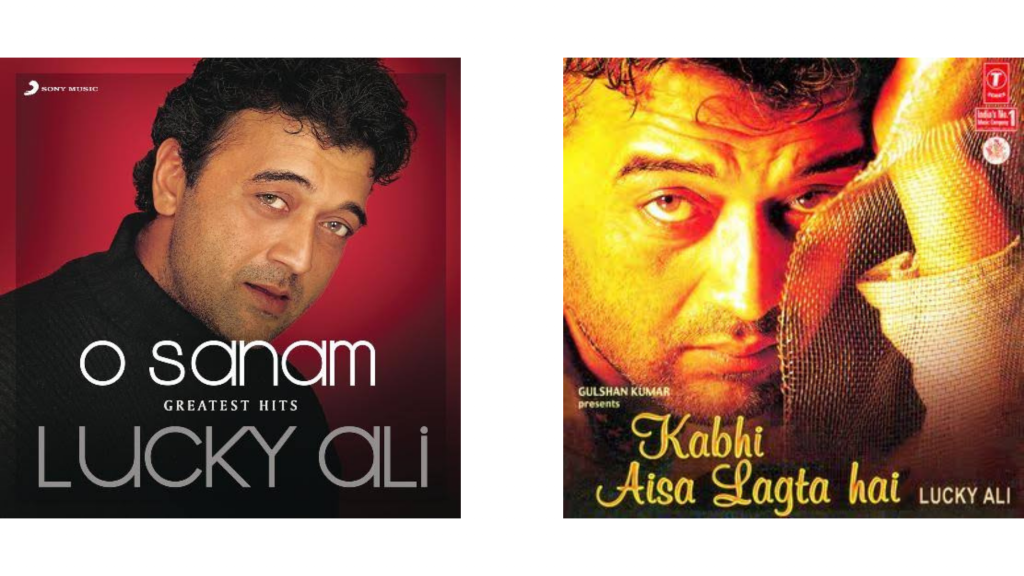
Being exposed to the performing arts and recording studios from a young age, Lucky could observe his father from close quarters. Mehmood was not just an actor, but an accomplished singer as well. “He acted, he sang, he danced, he directed. He was a complete artist and for me, my father was the epitome of whatever art there was,” he fondly recalls. Does he get the artistic genes from his father then? “Both my parents and my grandfather were artists. My uncle, Pyarelal Shakir, was a Christian poet. I guess the least my siblings and I could do was to understand the field,” he adds.
Off late, the indie pop legend has been pretty active on the stage, performing live in different cities, and making the most of the post-lockdown time. His first single of the year, Intezaar, dropped last month, and is the first of many singles that he hopes to release this year. But till a year or two ago, Lucky had been contemplating retirement.
“My mind had been heading in that direction. Then, when the pandemic arrived, I felt it was nature’s way of telling me to retire,” he recalls. The singer stays at his farm in Bengaluru, and he wanted to spend his time growing fruit trees and looking after the farmer community in the vicinity.
It was because of his children, who started Farmhouse Music label, that he was prompted to come out of his self-imposed hibernation. “I had composed a number of songs with the intention that the children will take it forward. The kids decided it is time to bring them out, and I was just told what it is I have to do to push an album out. In front of the children, I really don’t have a say,” he smiles, the tinge of affection making his voice sound even huskier.
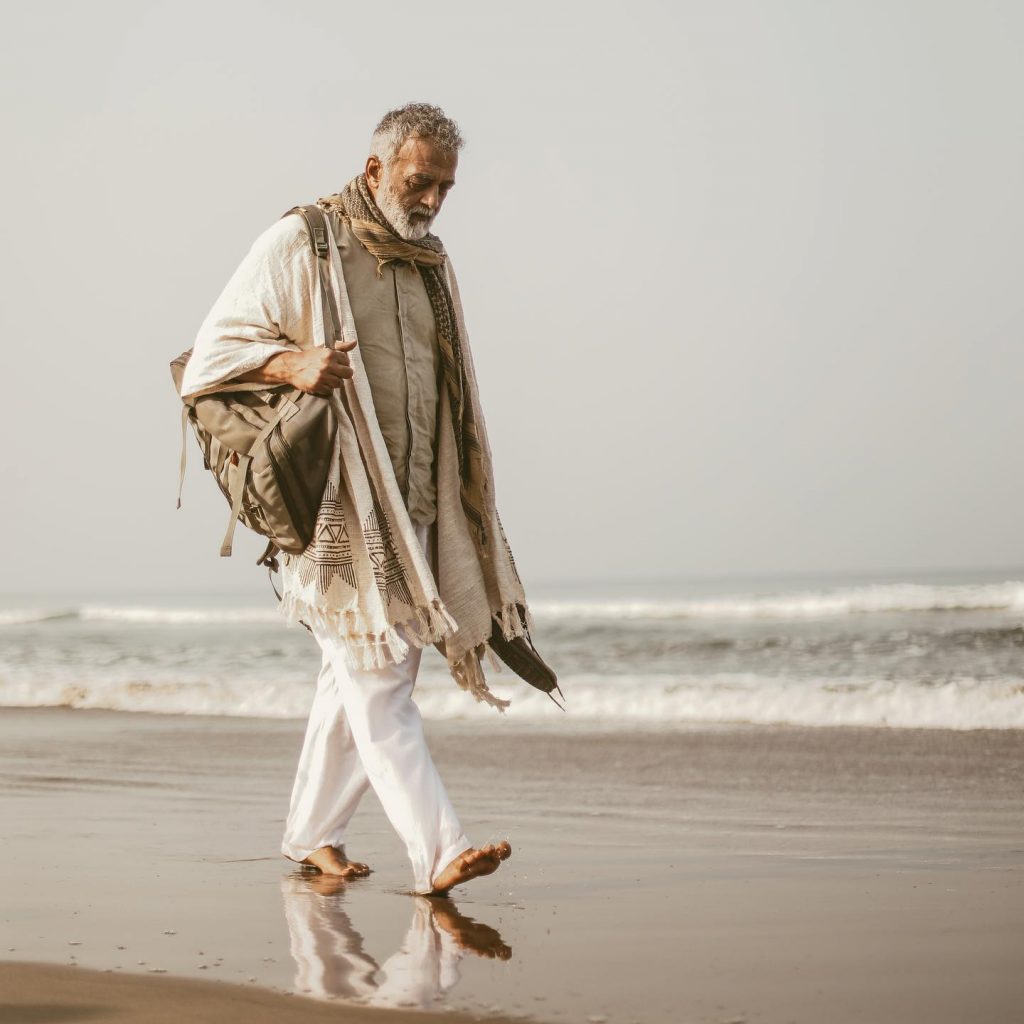
He has joined hands with long-time collaborator, brother-in-law, composer, and producer Mikey McCleary for the series of singles that would ultimately culminate into an album. “It’s work in progress. My realisation is that it’s never over even after it is over. A song takes on a different life and a different expression even after its release,” he says.
His last album, Raastaman, released on his website informally in 2011, but Lucky insists that he only puts out an album when he feels the time is right for it. “I was procrastinating because when you are putting things together, the mix has to feel right. It can’t just be for the sake of releasing,” he says.
Fame and appreciation have come his way aplenty, but Lucky finds contentment in being aware of their temporary nature. “These things come and they go. If you can make your peace with it, then nothing else matters. You just do your work to the best of your ability and move on,” he philosophises.
Feeling the interview coming to an end, I request him to sing a few lines of Kitni Haseen Zindagi Hai Yeh — ‘my Lucky Ali song’ — and he graciously obliges. How, I wonder aloud after he is done, does he not like being called a singer or musician, as I’d read about him. “Because I am not,” he says simply. “Music is a serious hobby for me. I don’t know what I’d like to be known as. Come to think of it, I don’t even want to be known. I don’t enjoy labels and titles. I enjoy this space and I happen to work with some very special people,” he says.
So, what do we call you then, I ask. “Lucky bhai,” his guffaws, his voice booming across the room. Well, Lucky bhai, retirement can wait. There is plenty more music where that came from.
Reproduced with permission from Mansworldindia.com





